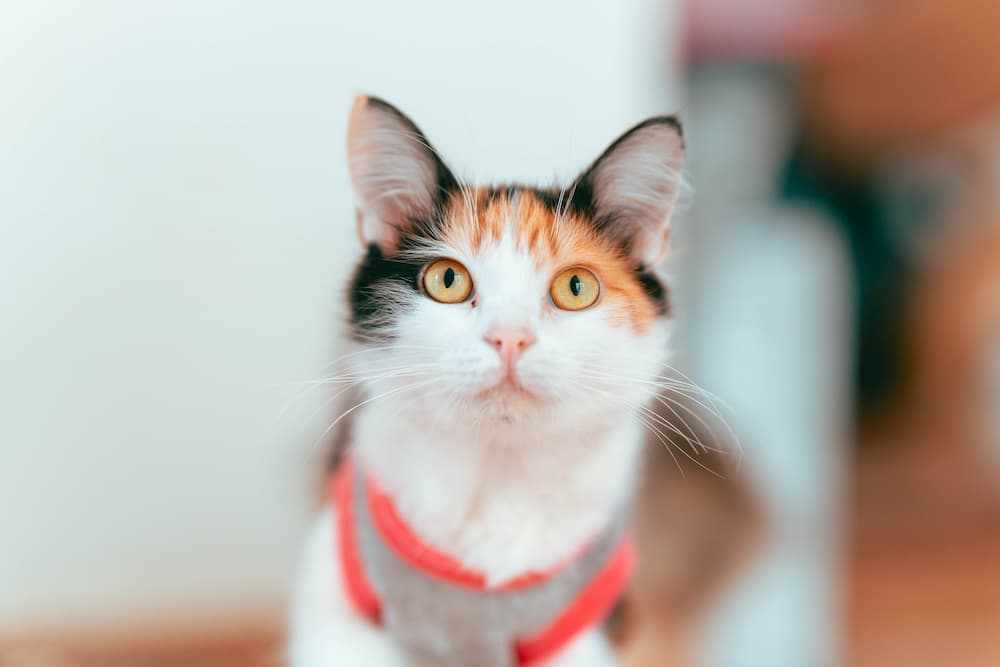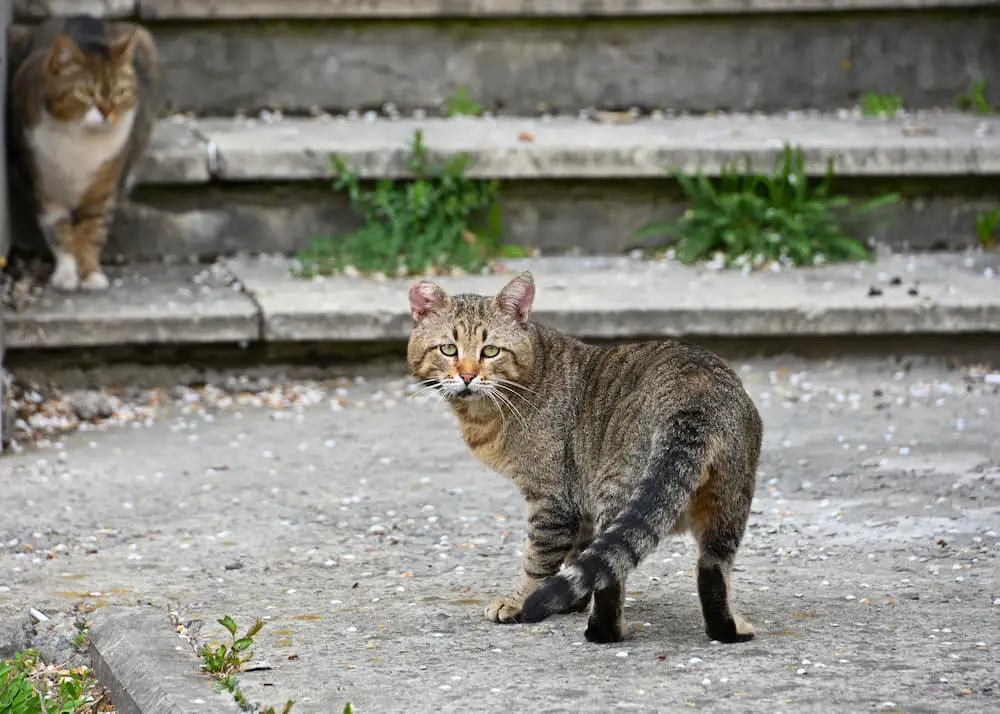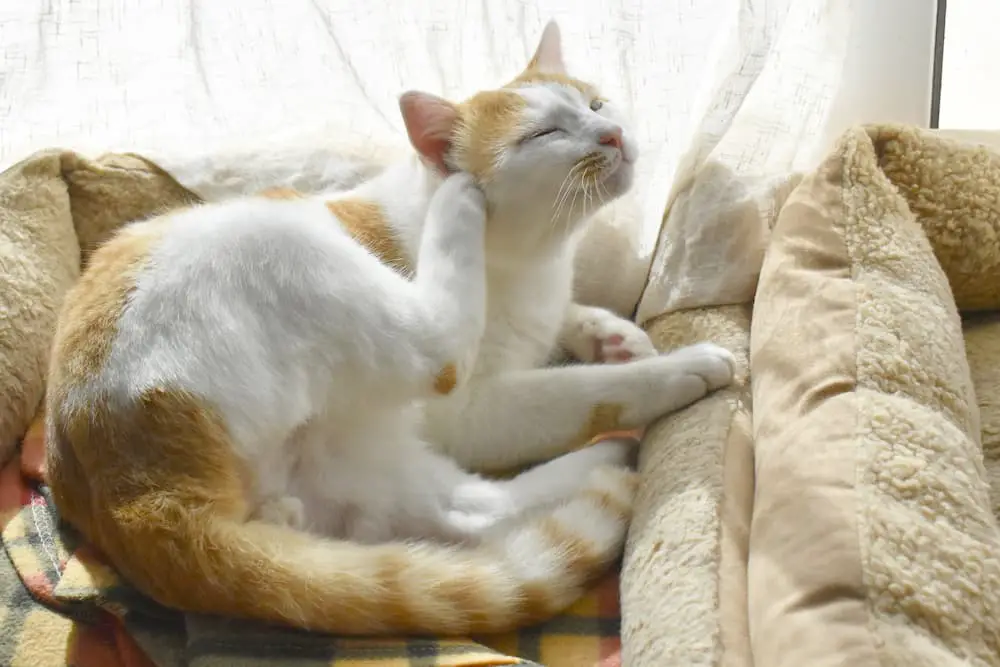Feline Immunodeficiency Virus (FIV) is a slow-progressing virus that affects cats worldwide. Unfortunately, many myths exist about FIV+ cats that can create fear and misconceptions, making it harder for FIV+ cats to find loving forever homes. The truth is, FIV+ cats most often live long, happy, healthy lives and many will never show signs of sickness.
In truth, the myths about FIV are far more dangerous to cats than the disease itself. In this article, we aim to dispel some of the common myths about FIV+ cats and offer factual information about their health, care, and adoption.

Myth: FIV can be transmitted to humans or other non-feline pets.
False. Feline Immunodeficiency Virus (FIV) is a feline-specific virus and cannot be transmitted to humans or other non-feline pets. The virus is transmitted between cats only, and even so, only affects about 3 to 5% of cats in the U.S. Male, non-neutered, feral or stray cats are most at risk, because they are most likely to engage in the type of fighting that results in deep bite wounds.
Myth: FIV is highly contagious.
False. FIV is transmitted through direct fluid contact, such as through deep, penetrating bites where an infected cat’s saliva comes in direct contact with an uninfected cat’s blood. It is not transmitted through casual contact, such as sharing food or water bowls, using the same litter box, grooming, or cuddling. Very rarely, FIV can spread through sexual contact or from a mother to her kittens.
Fact: FIV is not easily transmitted between cats.
True. While the FIV virus can be transmitted to non-infected cats, it’s not as prevalent as once believed. It is most commonly transmitted through deep bites, which in itself is rare. Further, the virus is quite fragile. It cannot survive long in the environment and is killed by air, UV light, heat, and regular household cleaners.
Myth: All cats with FIV will die.
False. While FIV is a serious condition that significantly reduces a cat’s ability to fight off infections, not all FIV+ cats will die from the virus if they receive proper care and attention. In fact, with the right care and support, FIV+ cats can live just as long and healthy lives as any other cat. This includes access to veterinary care, a safe home environment free from stressors like overcrowding or aggression, and a healthy diet tailored to their needs. In most cases, FIV+ cats live their entire lives no differently from their FIV- housemates.
Fortunately there are also organizations dedicated to helping pet parents of FIV+ cats. The EveryCat Health Foundation, for example, provides resources and support to pet parents of cats with FIV and other illnesses. In addition, there are a number of online forums dedicated to helping pet parents manage the special needs of their FIV+ cat. Bottom line, an FIV+ diagnosis is not a death sentence.
Fact: FIV reduces a cat’s immune system, making them more susceptible to infections.
True. Feline Immunodeficiency Virus attacks a cat’s immune system, reducing their ability to fight off infections. FIV+ cats are more prone to infections and illnesses than non-infected cats. However, this can be easy to manage with proper hygiene and providing a calm, clean environment for your cat. Regular vet checkups are essential to monitor and treat any illnesses your cat may have. With proper care, cats with FIV can live happy and healthy lives!

Myth: FIV+ cats can’t live with non-infected cats.
False. While it is true that FIV+ cats can transmit the virus to non-infected cats if a serious fight occurs, it is possible for FIV+ and non-infected cats to live together safely, as long as certain precautions are taken to prevent the spread of the virus. These include regular veterinary check-ups and routine vaccinations for both the FIV+ and non-infected cats, making sure cat-to-cat introductions are performed slowly to prevent any fighting or aggression, and keeping their environment clean and sanitary to avoid exposure to other illnesses they may not be as able to fight-off as non-infected cats.
Fact: FIV+ cats can be adopted.
True. Many FIV+ cats are available for adoption at animal shelters and rescues. With proper care and management, they can make wonderful companions and pets. And, they CAN live long, healthy, happy, and safe lives with other, non-infected cats, too.
If you’re considering adopting an FIV+ cat, it’s essential to work with a qualified veterinarian who can help you manage their health needs. Be sure to provide a healthy and clean living environment that minimizes the risk of infection, and avoid any potential exposure that could put them at risk.
Fact: Most FIV+ cats live long and healthy lives.
True. With proper care, FIV+ cats can live just as long and healthy lives as non-infected cats. Regular veterinary checkups, vaccinations, and a healthy diet and living environment can help support a cat’s immune system and reduce the risk of infections.
Fact: FIV+ cats are more susceptible to dental problems, anemia, and other illnesses.
True. FIV+ cats are more prone to dental diseases, anemia, and other illnesses due to their weakened immune systems. It’s essential to monitor them closely for signs of illness and to seek veterinary treatment promptly.
In conclusion, it’s important to understand the facts and reality of FIV+ cats to dispel the myths and misconceptions about this illness. With proper care and management, FIV+ cats can live happy, healthy, and fulfilling lives. By educating ourselves and others, we can provide better care and support for FIV+ cats and help them live happy and healthy lives.
The Catington Post is reader-supported. That means, if you make a purchase through links on our site, we may earn an affiliate commission. All images and names which are not the property of The Catington Post are the property of their respective owners.






